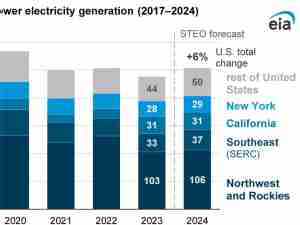European Union leaders are preparing for a further reduction in gas supplies from Russia, seeking ways to cushion the effects of the unprecedented crisis, as well as a surge in energy prices, on the region’s economy.
The impact of Russia’s invasion of Ukraine and its use of energy as a weapon forced its way into a meeting of EU leaders on Friday, after cuts in shipments from Moscow affected 12 member states and pushed Germany to raise its gas-risk level to the second-highest “alarm” phase.
“If Germany is already saying today that during the winter they’ll have a shortage of gas, the impact will be enormous for Germany but also for all other European countries,” Belgian Prime Minister Alexander De Croo told reporters in Brussels on the second day of the summit.
A day earlier, when leaders started arriving in Brussels, the bloc’s biggest economy warned that Russia’s moves to slash EU gas supplies risked sparking a collapse in energy markets, drawing a parallel to the role of Lehman Brothers in triggering the financial crisis. The supply woes have already pushed gas and power prices to record levels.
“The notion of cheap energy is gone and the notion of Russian energy is essentially gone and we are all in the process of securing alternate sources,” Latvian Prime Minister Krisjanis Karins said. “This is a result of the war that Russia is waging in Ukraine—it’s causing difficulties for all of us, but in the end we will all come out much more resilient.”
The supply situation is pushing up the cost of electricity across Europe, fueling inflation and increasing the economic burden on businesses and households still recovering from the pandemic. The nervousness in energy markets is exacerbated by uncertainties over what the next move by the Kremlin will be. Luxembourg’s prime minister, Xavier Bettel, said the decision on whether or not to turn off the gas tap was exclusively in the hands of Russia’s President Vladimir Putin.
“We will have a discussion about inflation, we’ll certainly also discuss energy prices,” he told reporters, adding that all the member states are dependent on one another. “With gas, we’re seeing if we can find new solutions with Norway or with Algeria, or LNG or the US, but I can tell you that these are very uncertain times when it comes to prices.”
Russia’s move to tighten the grip on supplies comes as Europe is trying to fill up gas reserves before the next heating season, which usually starts around October. The bloc’s gas storage was 55% full on June 22 compared with the five-year seasonal norm of 57% for this time of year. The goal is to reach 80% by Nov. 1 to avoid problems during the winter.
Coordinated Solution
German Chancellor Olaf Scholz told reporters in Brussels that member states are “well prepared” for the challenge but that they’ll need to accelerate efforts to diversify energy infrastructure.
The issue of preparedness for disruptions will also be raised by EU energy ministers when they meet in Luxembourg on Monday. Belgium’s De Croo called on the European Commission to coordinate a solution among EU countries to help navigate the difficult winter. The EU’s executive arm will discuss readiness for emergency situations and possible additional measures with the ministers, said the bloc’s energy chief Kadri Simson.
“There is no immediate risk for our security of supply, but the situation is serious,” Simson told Bloomberg News. “The disruptions make it more difficult to fill the storage and we must be prepared for further cuts. Member states need to update their contingency plans and conclude solidarity agreements.”









